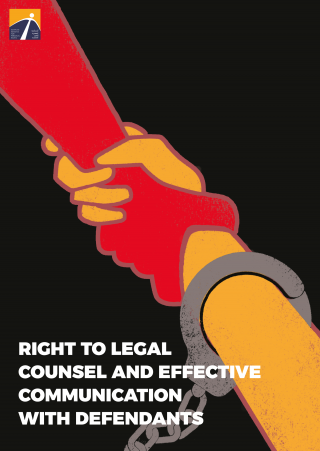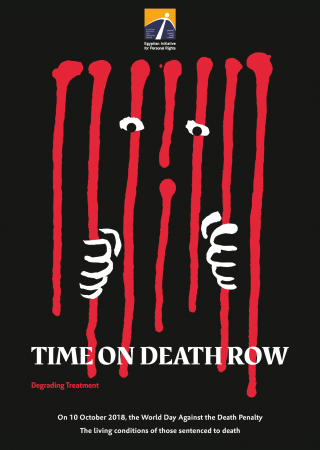Therefore, the Stop the Death Penalty Campaign in Egypt and the undersigned organizations call upon the Egyptian government to immediately halt the implementation of the death penalty and to abide by the Egyptian Code of Criminal Procedure by informing the families of those sentenced to death of the execution deadline and allowing them to visit the convicted person in accordance with what is stipulated in Egyptian law.
Files: Capital Punishment
The five groups called on all civil society organizations, political parties, unions, individuals, and Egyptian communities abroad and regional and international bodies to endorse these seven steps as minimum requirements to begin restoring the dignity and rights of all Egyptians.
The Egyptian government carried out death sentences over the previous three days without prior notification to the families of the convicts of the execution date. The families have also not been allowed to see their relatives before the execution, a right enshrined by Article 472 of the Criminal Procedure Law
In the first 2 months of 2021 alone Egyptian authorities executed 7 prisoners.
67 new defendants were sentenced to death
48 new defendants received provisional death penalty sentences.
By the end of October 2020, the justice system in Egypt had carried out the largest number of executions (in different cases of a varying nature) since it began its expansion of the application of death penalty in the last five years. A total of 53 people were executed during the course of October, the last of these executions took place on October 28 when four convicts were executed in a judgement related to the killing of 17 people in a nightclub fire in Agouza.
EIPR engages with the topic through highlighting specific difficulties that have impeded the fulfillment of the right to counsel in a number of cases seen before Egyptian courts, where death sentences have been issued. The case files and investigation papers of these cases were collected and documented by the team between 2017 and 2019.
The second annual report on the death penalty in Egypt, covering the period from January to December 2018.The report reviews and documents death sentences issued in Egypt throughout 2018 and attempts to analyze patterns of handing down death sentences verdicts by Egyptian courts, tracking quantitative and qualitative shifts in the application of the death penalty—the maximum penalty in criminal law and the only irreversible penalty.
The Egyptian Initiative for Personal Rights and the Adalah Center for Rights and Freedoms condemn the sudden decision on Wednesday morning, February, to carry out the death sentence against nine people convicted for the assassination of the public prosecutor in case no. 81/2016/High State Security felonies.
For the fourteenth time in the space of a year, the Court of Cassation has upheld death sentences handed down by lower courts, making them final and enforceable. On Sunday, November 25, 2018, the court issued its judgment on case no.
The Egyptian Initiative for Personal Rights (EIPR) opposes the death penalty in principle and in all cases without exception. EIPR condemns the Egyptian government’s adherence to the death penalty and urges it to sign and ratify the second optional protocol of the International Covenant on Civil and Political Rights (ICCPR), which seeks a moratorium on the death penalty.





